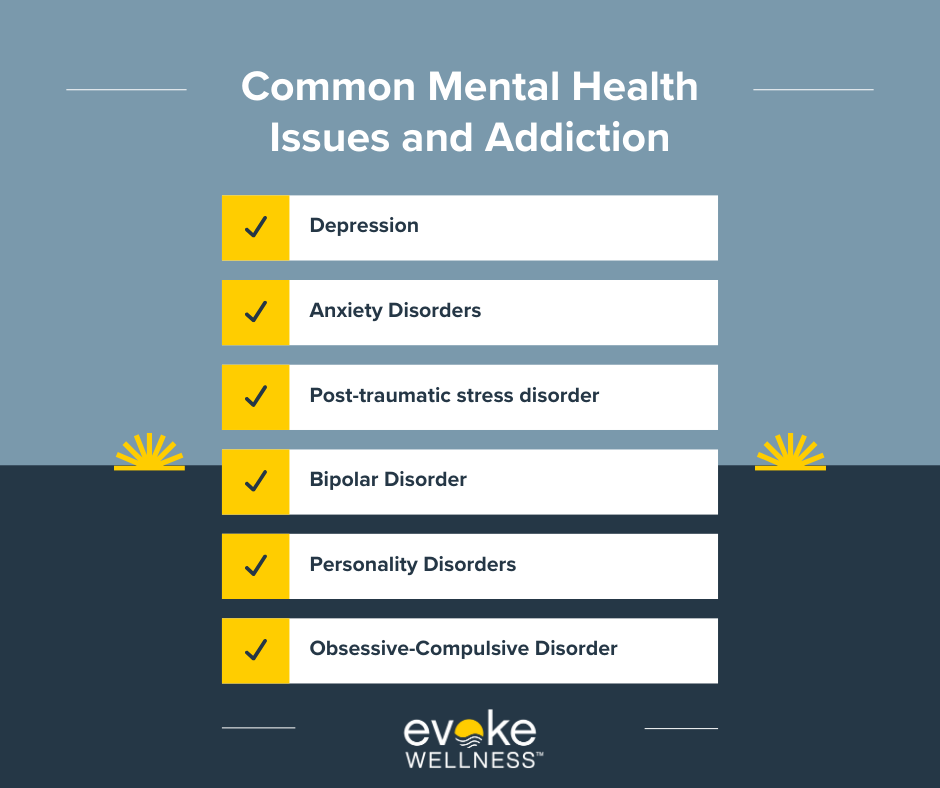When you’re struggling with both substance abuse and mental health issues, finding the right treatment can be challenging. Dual diagnosis, affecting an estimated 9.2 million adults in the U.S., requires a comprehensive approach. Detox centers are increasingly collaborating with mental health providers to offer integrated care for these complex cases. This partnership ensures that you receive tailored treatment addressing both your addiction and underlying mental health concerns simultaneously. By combining medical detox, therapy programs, and specialized dual diagnosis treatment, these collaborative efforts provide you with a solid foundation for lasting recovery. Let’s explore how this integrated approach is revolutionizing substance abuse treatment and improving outcomes for individuals with co-occurring disorders.
Together, let’s embrace the journey to recovery and the promise of a new beginning. Call us at (833) 949-1347 today or reach out online.
Understanding Dual Diagnosis and Co-Occurring Disorders
What is a Dual Diagnosis?
A dual diagnosis, also known as co-occurring disorders, refers to the simultaneous presence of both a mental health disorder and a substance use disorder (SUD) in an individual. According to a study by the National Survey on Drug Use and Health, in 2020, 17 million adults aged 18 or older had a co-occurring SUD and mental illness in the past year. This highlights the significant prevalence and importance of addressing dual diagnosis.
Why Do Substance Use Disorders and Mental Disorders Occur Together?
Mental health disorders and substance abuse often co-occur due to complex interactions between biological, psychological, and environmental factors. As stated on the Evoke Wellness website, people with mental health conditions may use drugs or alcohol to self-medicate and alleviate their symptoms, while substance abuse can also exacerbate or trigger the onset of mental health issues.
Common Mental Health Issues and Addiction

As highlighted in an article on Evoke Wellness, substances like cocaine can profoundly impact brain chemistry, leading to mental health issues such as paranoia, panic attacks, psychosis, and depression. Treating both conditions simultaneously is crucial for successful recovery and long-term stability.
The Prevalence of Co-Occurring Disorders
Staggering Statistics
The prevalence of co-occurring substance use and mental health disorders is staggeringly high. According to a study from the National Institute on Drug Abuse, over 50% of those with a drug use disorder have at least one other mental disorder. Substance abuse treatment programs report even higher rates, with 50-70% of clients showing lifetime histories of co-occurring psychiatric problems.
Treatment Challenges
Despite these alarming figures, the current treatment system often fails to adequately address co-occurring disorders. Only a small minority (6-15%) of clients receive integrated treatment for both substance abuse and mental health issues. This study cites limited specialized staff, high turnover, and lack of resources within substance abuse programs as key barriers to comprehensive care.
Individualized Approaches
While standard substance abuse treatment can benefit some with co-occurring disorders, those with more severe or complex mental health conditions require specialized, integrated approaches. Assessing the severity of both issues may determine the appropriate level of care. According to Evoke Wellness, effective dual diagnosis programs utilize evidence-based therapies like CBT and DBT, medication, and family counseling to treat co-occurring issues concurrently.
Ongoing Support
Long-term, recovery-oriented strategies and continuing care models are crucial for supporting the ongoing needs of this population and preventing relapse. Combining acute medical detox, residential rehab, intensive outpatient services, and other evidence-based offerings creates a comprehensive continuum of care vital for lasting sobriety and mental wellness.
Signs You May Need Detox for Dual Diagnosis Treatment
Physical Dependence
One of the most apparent signs that detox is necessary is the presence of physical dependence on substances. This manifests as withdrawal symptoms – like nausea, sweating, and insomnia – when use is stopped, as well as increased tolerance requiring higher doses to achieve the desired effects. These are clear indicators that the body has adapted to the substance, making medically supervised detox crucial for safely managing the withdrawal process.
Psychological Struggles
Beyond the physical aspects, psychological struggles often accompany addiction and point to the need for comprehensive treatment. Neglecting important responsibilities at work, school, or home due to substance abuse is a common warning sign. Unsuccessful attempts to quit on one’s own, despite the negative consequences on relationships, health, or legal matters, also highlight the benefits of professional detox programs that provide a supportive environment and evidence-based therapies.
Co-occurring Mental Health Concerns
If mental health issues like depression, anxiety, or PTSD are present alongside substance abuse, this suggests a dual diagnosis requiring specialized care. Integrated treatment programs that address both the addiction and underlying mental health disorder simultaneously are often necessary for lasting recovery. Medically supervised detox is the critical first step, stabilizing the individual before engaging in comprehensive therapies like CBT and DBT to address the root causes.
Our Approach to Detox for Dual Diagnosis
Tailored Treatment Plans
At Evoke Wellness, we understand the complexities of dual diagnosis – the co-occurrence of substance use disorders and mental health conditions. Our approach recognizes that treating both issues simultaneously is crucial for lasting recovery. Each client receives a personalized treatment plan that addresses their unique needs and challenges.
Comprehensive Detoxification
The first step towards recovery is safe, medically-supervised detoxification. Our state-of-the-art detox program provides 24/7 monitoring and care to manage withdrawal symptoms effectively. We employ medication-assisted treatment (MAT) options like Vivitrol, Suboxone, and Methadone to alleviate discomfort and cravings, ensuring a smoother transition into rehabilitation.
Integrated Therapies
After detox, our dual diagnosis treatment program integrates evidence-based therapies to address both substance abuse and mental health disorders concurrently. Clients participate in cognitive-behavioral therapy (CBT), dialectical behavior therapy (DBT), trauma-focused therapies, and other modalities tailored to their specific needs. We also incorporate holistic approaches like mindfulness, yoga, and art therapy to promote overall well-being.
Family Support
Recognizing the profound impact of addiction on family dynamics, our family therapy program plays a vital role in the recovery journey. We empower families with education, communication strategies, and healthy boundary-setting to rebuild trust and foster a supportive environment for long-term sobriety.
Continued Care
Recovery is an ongoing process, and we’re committed to supporting our clients every step of the way. Our rehab aftercare program provides access to resources, support groups, and motivational interviewing therapy to maintain motivation and prevent relapse, empowering individuals to sustain their newfound well-being.
Receiving Integrated Treatment for Dual Diagnosis
Comprehensive Care for Co-Occurring Disorders
Addressing both substance abuse and mental health issues simultaneously is crucial for effective dual diagnosis treatment. Evoke Wellness at Hilliard offers an integrated approach, combining psychotherapy, medication management, and support for behavioral changes. This holistic strategy targets the complex interplay between addiction and conditions like depression, anxiety, PTSD, and bipolar disorder.
Individualized Treatment Plans
Dual diagnosis programs are tailored to each person’s unique needs. Evidence-based therapies like cognitive-behavioral therapy (CBT) and dialectical behavior therapy (DBT) help uncover underlying issues and develop coping mechanisms. Medications may be prescribed to alleviate mental health symptoms when appropriate.
Family education equips loved ones with tools to provide a supportive environment throughout recovery. The focus extends beyond immediate treatment to relapse prevention through lifestyle changes and long-term aftercare support.
A Continuum of Care
The journey often begins with medically supervised detox to safely manage withdrawal under 24/7 care. Patients then transition to residential or intensive outpatient treatment programs. This full continuum of care, from detox to ongoing therapy, is vital for lasting recovery from dual diagnosis.
- Medications like methadone, buprenorphine, or naltrexone ease cravings and discomfort during detox.
- Counseling, support groups, and holistic therapies address the physical, psychological, social, and spiritual aspects of addiction.
- Sober living arrangements and alumni programs foster community support after formal treatment ends.
By integrating mental health and addiction services, dual diagnosis treatment gives individuals the comprehensive care needed to achieve and maintain sobriety while improving overall well-being.
FAQ: What is the Best Detox for Dual Diagnosis?
Integrated Detox Programs
For individuals struggling with co-occurring substance use and mental health disorders (dual diagnosis), an integrated detox program is often the most effective approach. These specialized facilities provide medically-supervised detox to safely manage withdrawal symptoms, combined with therapy and counseling to address the psychological aspects of addiction and mental illness simultaneously.
According to a study by SAMHSA, nearly 9.5 million adults in the U.S. had co-occurring substance use and mental health disorders in 2020. Attempting to detox alone can be extremely dangerous for this population, as withdrawal symptoms can exacerbate mental health issues like depression, anxiety, and psychosis.
Comprehensive Care Approach
The best dual diagnosis detox centers offer a comprehensive, evidence-based approach that addresses the complex interplay between addiction and mental health conditions. This typically involves a combination of:
- Medication-assisted treatment to alleviate withdrawal symptoms and cravings
- Cognitive-behavioral therapy (CBT) and dialectical behavior therapy (DBT) to modify thought patterns and behaviors
- Support groups and counseling to develop coping strategies
- Holistic therapies like mindfulness, yoga, and nutritional guidance
Evoke Wellness at Hilliard is one such facility in Ohio that provides an integrated dual diagnosis treatment program. Their team of addiction specialists, mental health professionals, and licensed therapists collaborate to create personalized care plans tailored to each patient’s unique needs.
Aftercare and Relapse Prevention
Crucially, the best detox centers for dual diagnosis recognize that recovery is an ongoing process. They emphasize the importance of a continuum of care, offering robust aftercare planning and relapse prevention support. This may include:
- Outpatient therapy and counseling
- Sober living arrangements
- Alumni support networks
- Medication management
- Family education and involvement
By addressing both substance abuse and mental health disorders concurrently through a comprehensive, evidence-based approach during detox and beyond, individuals with dual diagnosis have an increased chance of achieving lasting sobriety and improved overall well-being.
Conclusion
In conclusion, collaborative care between detox centers and mental health providers is crucial for effective dual diagnosis treatment. By integrating substance abuse treatment programs with therapy for co-occurring mental health disorders, patients receive comprehensive care that addresses all aspects of their recovery. Recent studies show that integrated treatment approaches can improve outcomes by up to 60% compared to treating each condition separately. As you consider treatment options, remember that medical detox, evidence-based therapy programs, and ongoing support are key components of successful recovery. By choosing a facility that prioritizes collaborative care, you’re taking an important step towards lasting wellness and a brighter future free from addiction and mental health challenges.
Begin Your Journey with Evoke Wellness at Hilliard
If you or a loved one is considering treatment, Evoke Wellness at Hilliard invites you to contact us. Our compassionate team is ready to answer your questions, discuss your needs, and help you take the first steps toward recovery. In Hilliard, you’ll find more than just a treatment program – you’ll discover a community dedicated to your wellness and success. Together, let’s embrace the journey to recovery and the promise of a new beginning. Call us at (833) 949-1347 today or reach out online.



